Recording
Schütz: A German in Venice
Share this
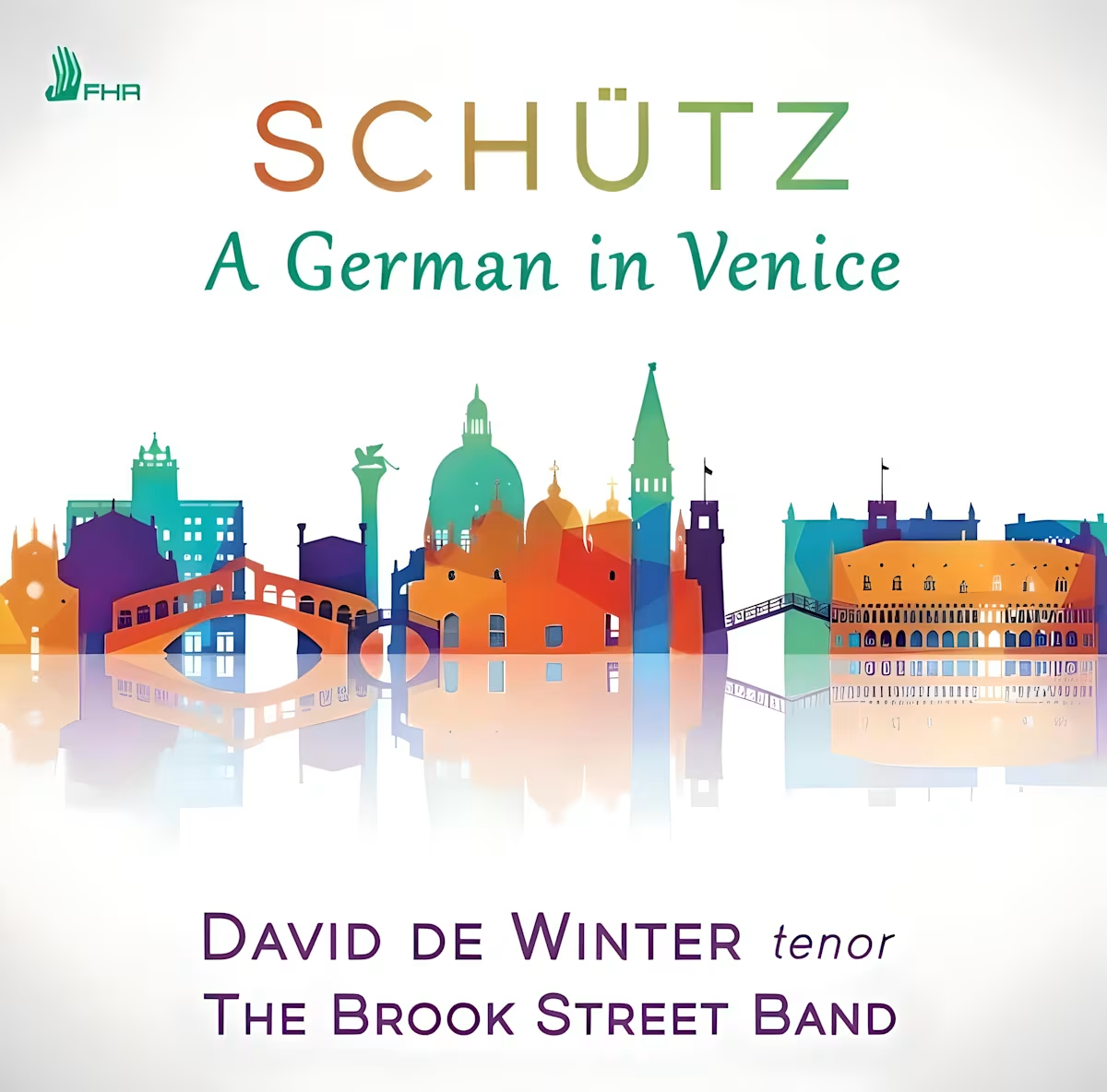
Continuo Connect dropped in on The Brook Street Band's Tatty Theo (TT) and tenor David de Winter (DdW), to discuss their collaboration for the recording of 'Schütz: A German in Venice'...
How did you first come to be involved in music?
DdW: My parents were both keen amateur singers who sang in church and in local choirs. Some of my earliest memories are singing hymns with them up in the organ loft of our church in West Byfleet, where I spent my early years. I then was lucky enough to be accepted into the world famous Westminster Cathedral Choir as a chorister at the age of 7 and since then, singing has been a major part of my life.
TT: I grew up in a family of musicians, so was always surrounded by music. My grandparents were the cellist William Pleeth and pianist Margaret Good, and I was lucky enough to hear concerts from a really young age. Very early on though, by the time I was about 14, I decided that my musical passions lay in the 17th and 18th century and decided to specialise in baroque cello, which I’d been introduced to by my uncle Anthony Pleeth.
How did this collaboration come about?
DdW: Back in the dark days of the Covid-19 lockdowns of 2020, I was searching for a project to interest me creatively and artistically and I realised that the 350th anniversary of Heinrich Schütz's death would be in 2022. I'd always been entranced by Schütz's music so I began researching his solo vocal repertoire, some of which I'd performed in a recital at the London Handel Festival in early 2020. I then approached Tatty Theo, director of The Brook Street Band, with whom I'd collaborated for their love: Handel festival back in 2019, and thankfully she was equally enthusiastic about the proposition and so the project was born.
TT: David and I had first worked together in 2019; I’d been hearing wonderful things about his voice and really wanted to find an opportunity for him to work with The Brook Street Band. David came to our love:Handel festival that year and brought the house down as a stunning Acis, in Handel’s Acis and Galatea. Just as important though was the ease with which we worked together, as though we’d known each other for years. When David phoned during lockdown to suggest another collaboration I knew it would another fun and fulfilling project.
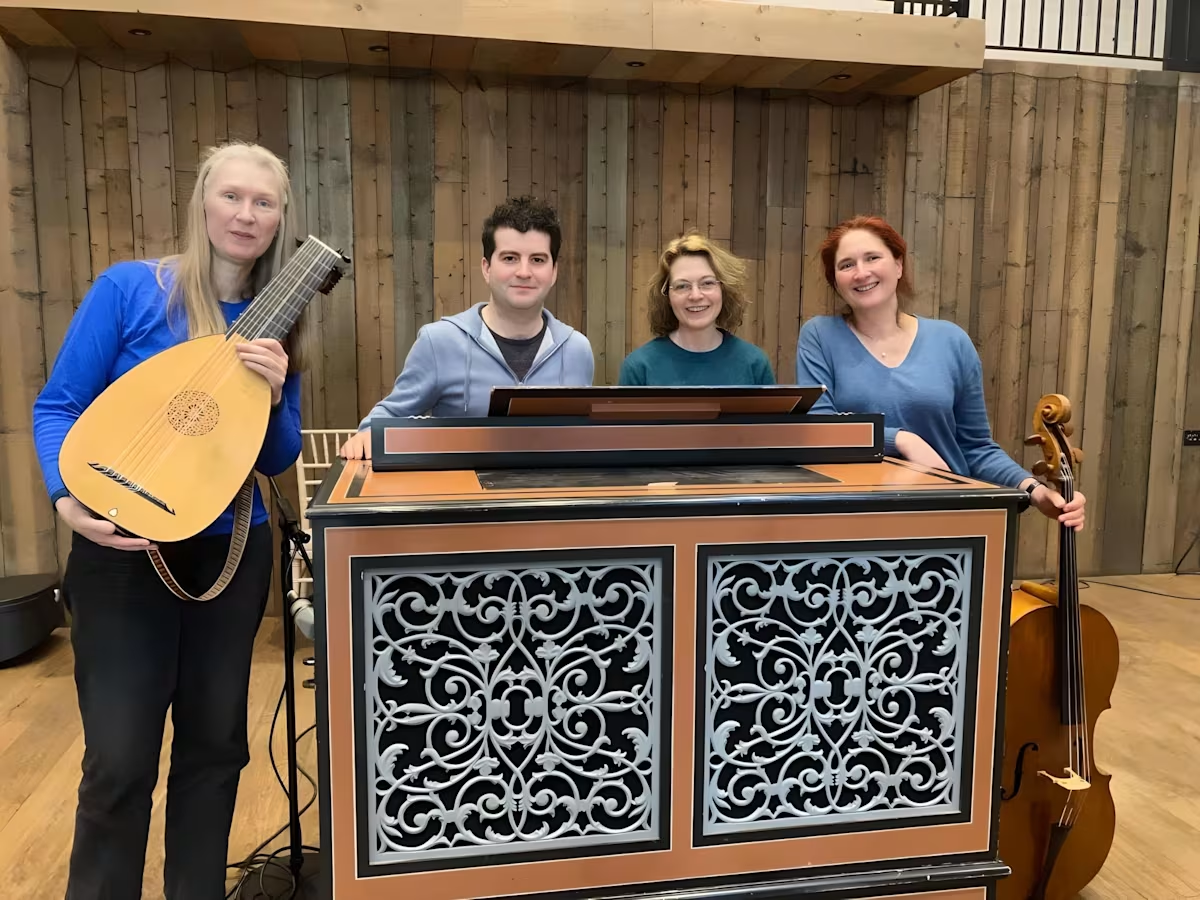
Why Schütz & Venice?
DdW: When researching Schütz's music I found a significant Italian flavour to his music, with plenty of instrumental ritornellos that reminded me of Claudio Monteverdi. I then delved deeper and realised that he'd spent two extended periods in Venice; the first where he studied with the organist and composer Giovanni Gabrieli and the second in the late 1620s, where he likely came into contact with Monteverdi (who was maestro di cappella at St Mark's) and other pre-eminent Venetian composers of the time, like Francesco Cavalli and Alessandro Grandi. Schütz's musical output at this time changes from mainly choral repertoire to more instrumental and small vocal forces and I was fascinated to draw the parallel between this and his Venetian contemporaries.
Furthermore, Schütz bringing back this Italianate and slightly exotic musical language to Germany is highly significant as it paved the way for the musical style of the German High Baroque of Georg Frideric Handel, Johann Sebastian Bach and Georg Philipp Telemann. For me, this juxtaposition of Schütz's and the Venetian music of the 1620s & 30s was the perfect subject for a recital programme, highlighting the influences but also differences between two musical cultures. He is a fascinating composer and whilst he might not be as celebrated or well-known some others of the early baroque period, he is arguably the most important.
Fundamentally though, regardless of intellectual or academic considerations, the music on this disc is simply divine and I just love singing it. It's thrilling, evocative, devotional, theatrical, plaintive and virtuosic in equal measure and it's amazing repertoire to sing, especially with the brilliant musicians of The Brook Street Band.
(Schütz was born in 1585 when the masters of the late renaissance like Giovanni Pierluigi da Palestrina & Tomas Luis de Victoria were at the height of their powers and lived until 1672, when composers such as Buxtehude were coming to prominence in Germany.)
TT: I’d studied Schütz’s music at university, but if I’d ever learned about his Venetian connection, I must admit that I’d forgotten about it in the intervening years. David made such a strong case for the programme to me, really bringing Schütz to life for me, describing his travels to Italy and the musical cross-pollination. Even though BSB had never recorded repertoire quite this early, I knew we could make a compelling interpretation, with our trademark style.
What is your background in this music?
DdW: When I was a chorister, I mainly sang music from the Renaissance era but I do remember singing the Schütz motet Hodie Christus Natus Est and a couple of the more well-known Monteverdi motets - Adoramus te Christe and Cantate Domino. I also distinctly remember performing Monteverdi's Vespers (which is in my top 3 favourite pieces of music of all time) as a chorister which absolutely blew my mind with the spatialisation and echo features of the music. The idea that something so cool (in my eyes at least) and dramatic could have been written almost 400 years previously was just incredible. Then, as a student and in my early professional years, I was introduced to some of Schütz's other motets, such as Wie lieblich sind deine Wohnungen (you simply must listen to the opening 8 bars) and Die mit Tränen säen and I started to delve into his music deeper which brought me to his solo vocal music and, eventually inspired me to do this project.
TT: I’ve always loved this period in music. An early memory is singing along to Monteverdi’s Beatus Vir, my favourite track on an old William Christie vinyl I had. BSB has performed Monteverdi’s music many times, and tying in with the Italian theme, some years ago we toured a programme of instrumental music by Salamone Rossi. It was fabulous to return to these amazing pieces and incorporate some into this programme, revisiting the origins of the florid Italianate style that we love and know so well, fused with German musical idiom, which informed so much music by our beloved Handel and Bach.

Talk us through the recording process...
DdW: In order to do such an ambitious recording, we first had to partner with a record label, and after an extensive search, we thought First Hand Records was the best fit for this disc. Then came the next stage which was raising the money to record such an ambitious project. We were extremely grateful to receive funding from the Continuo Foundation towards this recording, alongside many private donations and individuals who supported our Kickstarter campaign. We were lucky to be given kind permission by owners David and Beverley Aspinall to use The Great Barn at Oxnead Hall in Norfolk for our recording venue. We chose this because it is not only an ideal chamber music acoustic, but also has minimal disruption from outside noise. However, we hadn't factored in aircraft and the nearby RAF bases interrupted us a little during our sessions, but after a few calls were made, they went to practice their manoeuvres elsewhere.
During 2022 we performed the programme extensively throughout the UK so we knew the repertoire very well, but for the recording we added extra instruments, namely 2 Recorders and one Lute/Theorbo. We had a rehearsal day before the recording started so the new instruments could get up to speed and then we just went directly into 3 days of recording sessions in the beautiful surroundings of Oxnead Hall, starting at about 10am and ending anywhere between 5-7pm. Our engineer David Jones was on hand to set up the equipment and organise the microphones/balance in the correct way and we were fortunate to have Ben Parry as our producer who did a brilliant job in giving us feedback and making the recording as precise, beautiful and exciting as possible. What made the whole experience special was that the majority of us stayed on site so we could socialise, cook & eat meals together. I must also mention the snack table during the sessions which was full to the brim. A hungry musician is never a good musician...
TT: I’m not usually a fan of recordings, much preferring to be free and improvisatory, rather than try and remember what you did in the previous take. But this one was a lot of fun. We had the most enormous snack table on hand, and the Great Barn at Oxnead is just about perfect in every way. We had modern lighting, modern heating, modern loos - don’t laugh but these things are usually lacking in many of the churches where we often record – so the whole experience was supremely comfortable. All we needed to do was enjoy ourselves once the red light was on, not too tricky as we’re such good friends, there was seriously good food involved, and we were really relaxed.
Take a look behind the scenes at the recording.
Which track should we listen out for on the album?
DdW: I mean, where do you start? Stabat Mater by Giovanni Sances is an incredibly emotional piece which is based around a simple descending bass ostinato complete with outrageous harmony and jarring false relations. Monteverdi's Confitebor tibi Domine is another ostinato-based work which is littered with musical humour throughout. And Schütz's Ich werde nicht sterben has a wonderful instrumental ritornello halfway through. However, I think my favourite track from the album has to be Cavalli's O quam suavis, which is so beautifully intense but also delicate and intimate.
TT: It depends what mood you’re in. If you need a blast of pure positive energy, go for the Monteverdi. If it’s 3am and you need something more introspective, either the Sances or Schütz’s O Quam Suavis. I’m also partial to the instrumental tracks, giving another flavour to the music of the time, with popular melodies interpreted by Rossi, a lesser-known composer of Jewish origin.
Do you prefer recording or live performance?
DdW: Probably live performance. Recording allows you to chase 'perfection' so you can try out many different options and you can have another go if you screw something up. Nevertheless, nothing beats the thrill of live performance. I always like to keep things exciting, and a little peril during concerts is no bad thing. A predictable performance is a bit boring in my view.
TT: Definitely live performance as you can be free, musical ideas sparking off your fellow players. The same happens in recordings, but you need to try and remember what you did each time, in case you need to cut two takes together. That’s when the snack table comes in useful though – never underestimate how much cake or chocolate is needed as brain food. Now, wouldn’t it be a great idea to have a snack table at a live performance!
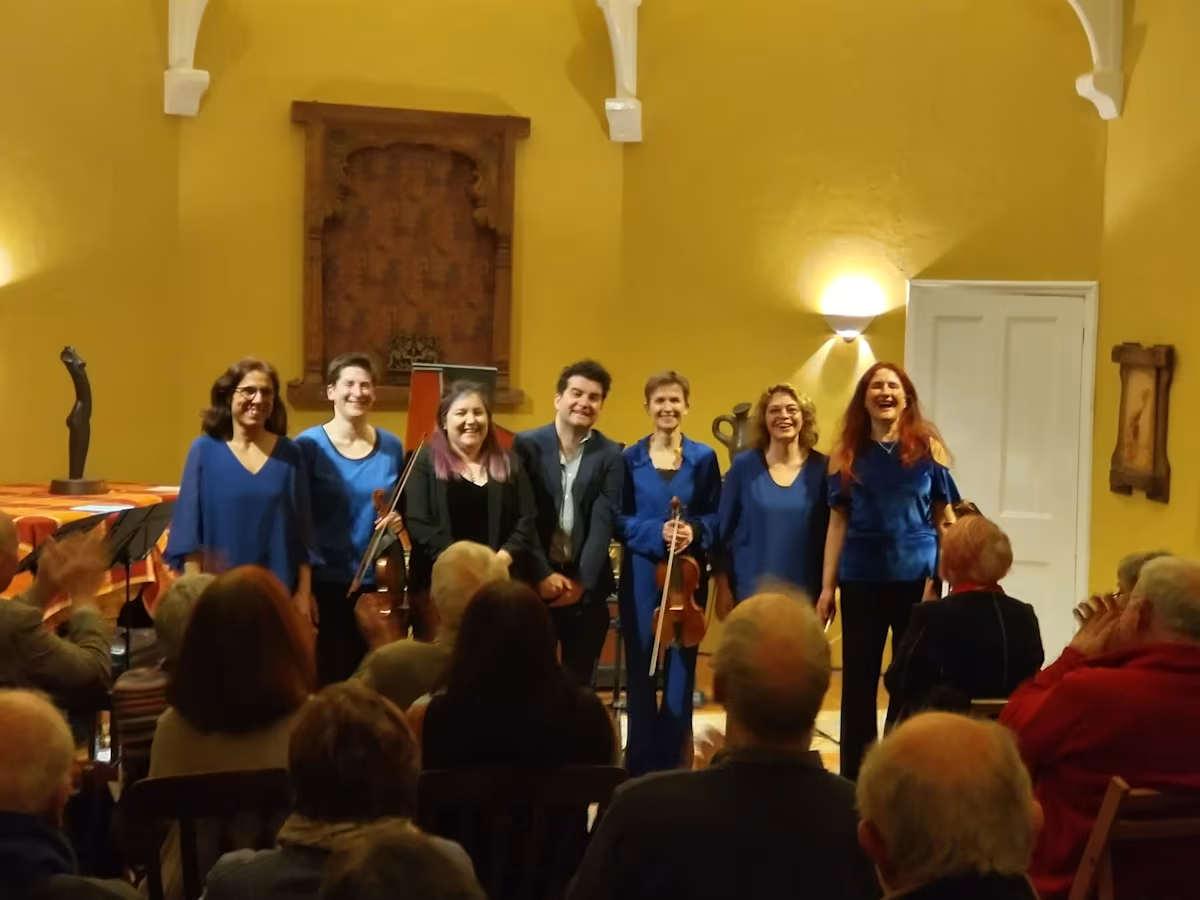
Can we catch the programme live in concert?
DdW: Yes! We are performing the programme live on Thursday May 30th in London at Heath Street Baptist Church, Hampstead. Tickets are £20 for adults and if you're under 21, totally free!
TT: We toured the programme in 2022 and 2023, and have plans for further performances this year, to coincide with the release of the disc. As David said, you can catch us in Hampstead on the 30th, at a concert kindly supported by the Hampstead Church Music Trust. We’d also like to thank Continuo Foundation for their support of the original recording project.
'Heinrich Schütz - A German in Venice' was supported by a grant from Continuo Foundation and was released on April 19th on First Hand Records.
This project was supported by a grant from Continuo Foundation
Supported by Continuo Foundation
Share this
Keep reading
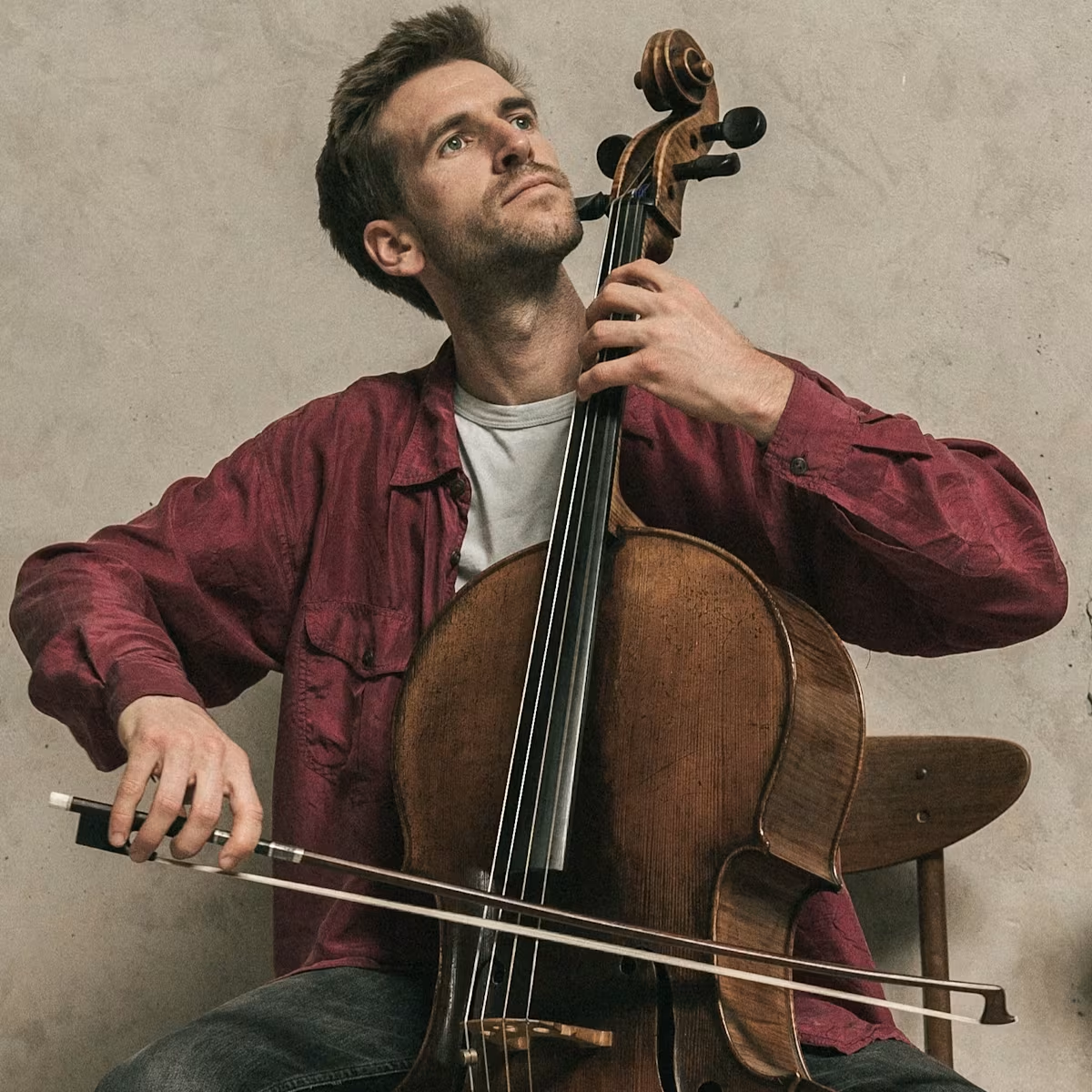
In conversation: George Ross
Continuo Connect meets George Ross, a British cellist specialising in period performance and founder member of the Consone Quartet.
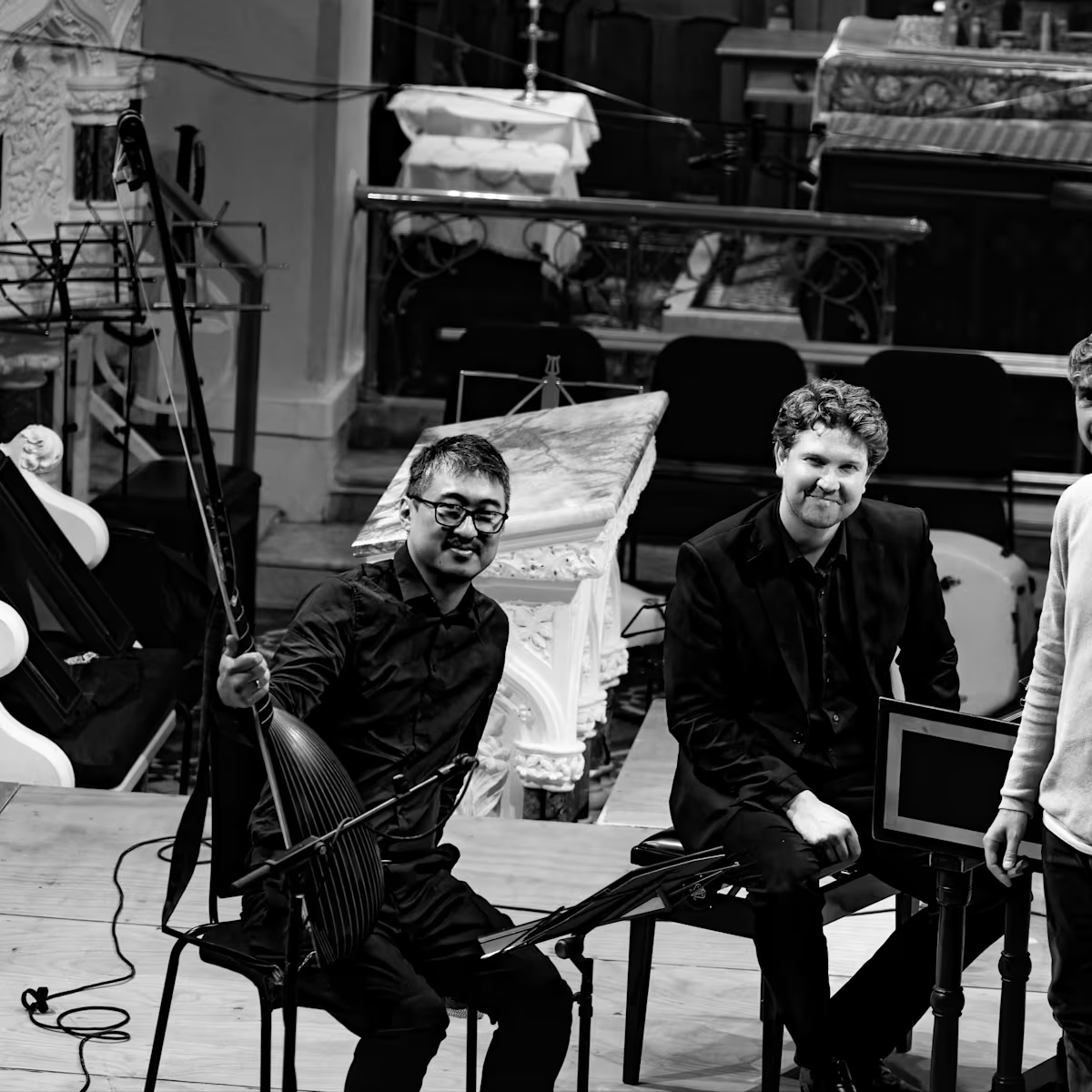
'Childhood's Awe'
“Childhood’s’ Awe” is a new work for Archlute and Harpsichord, by France-based Irish composer Sam Perkin.
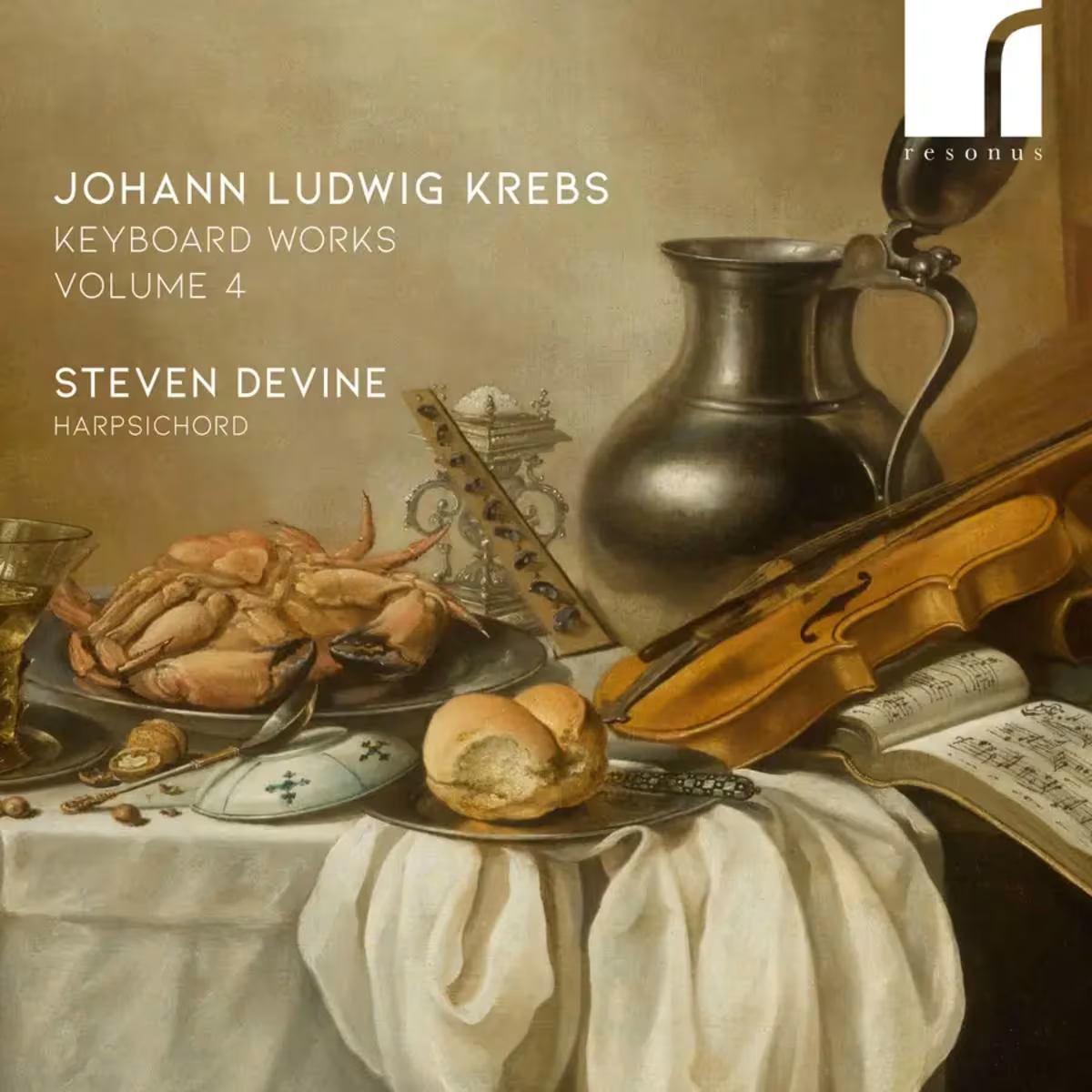
Johann Ludwig Krebs: Keyboard Works
Steven Devine has recorded the complete keyboard works by Johann Ludwig Krebs with a number of world premiere recordings.




